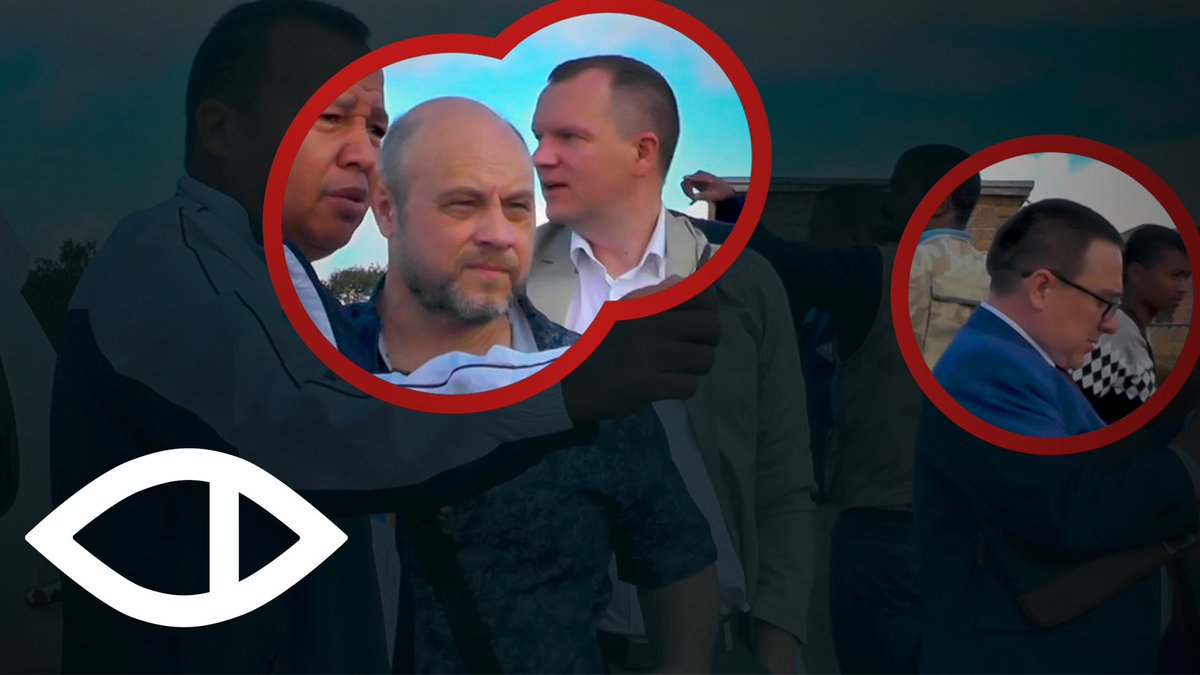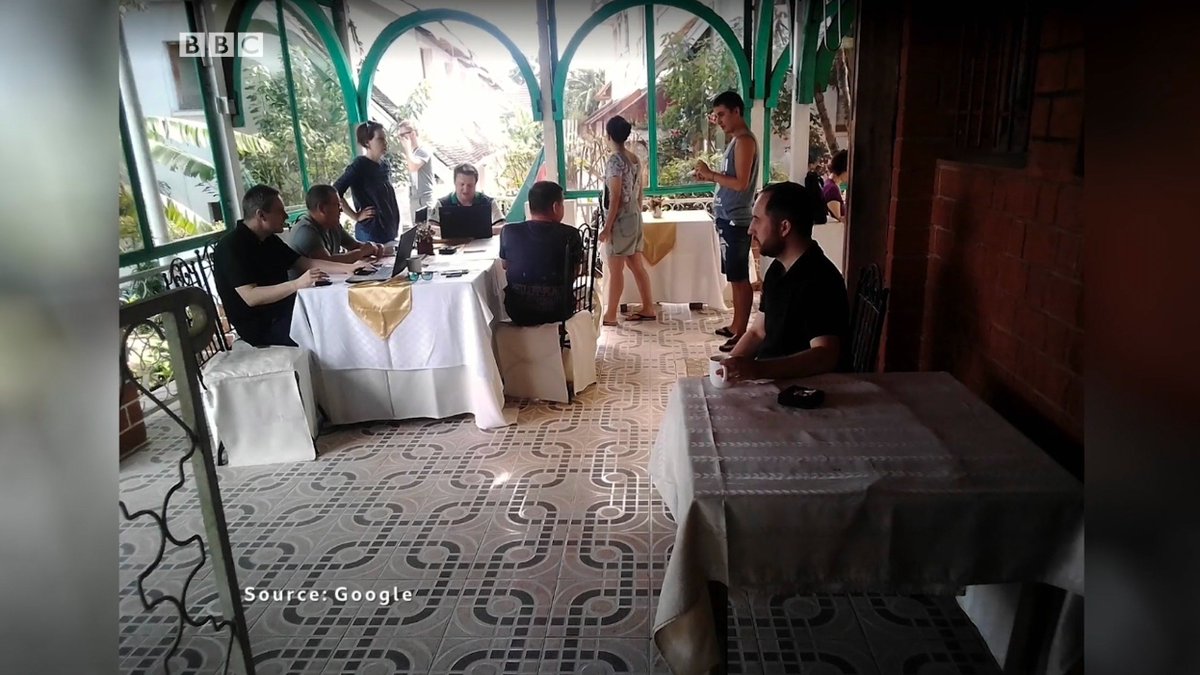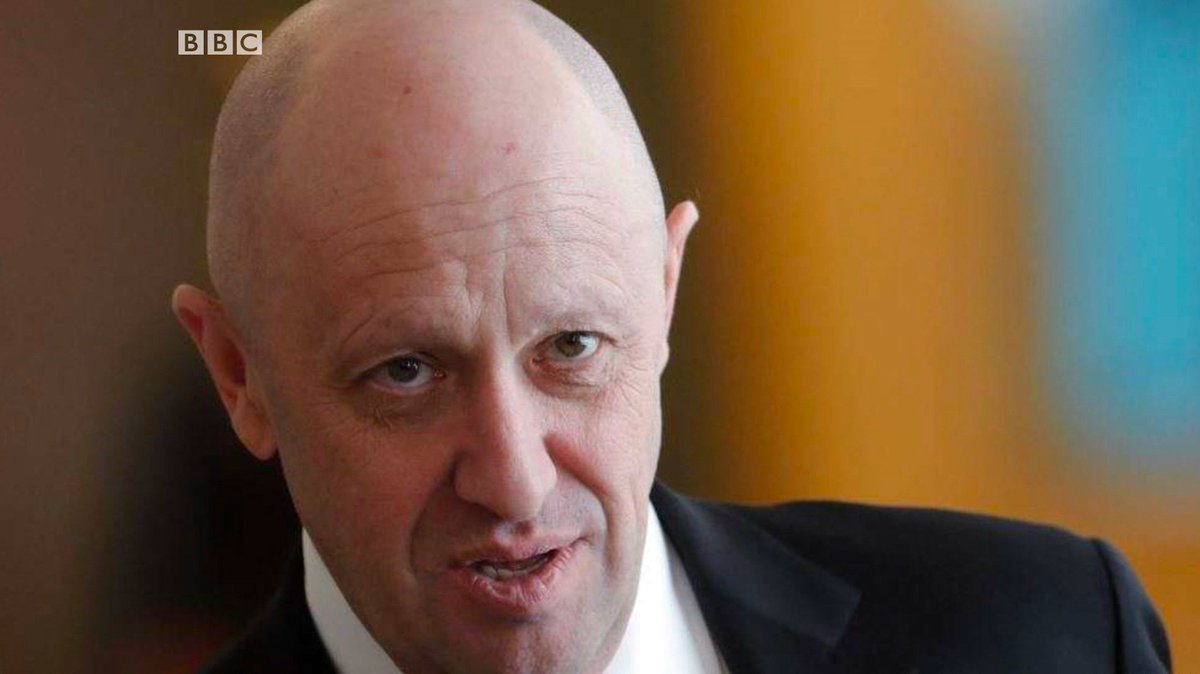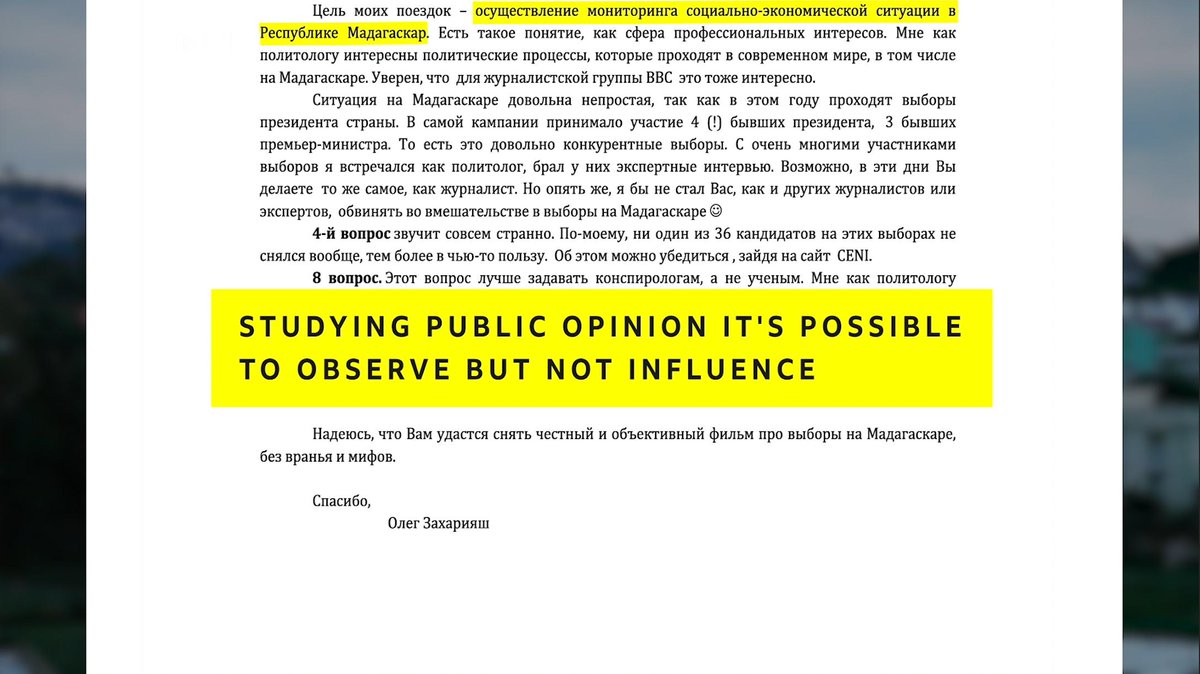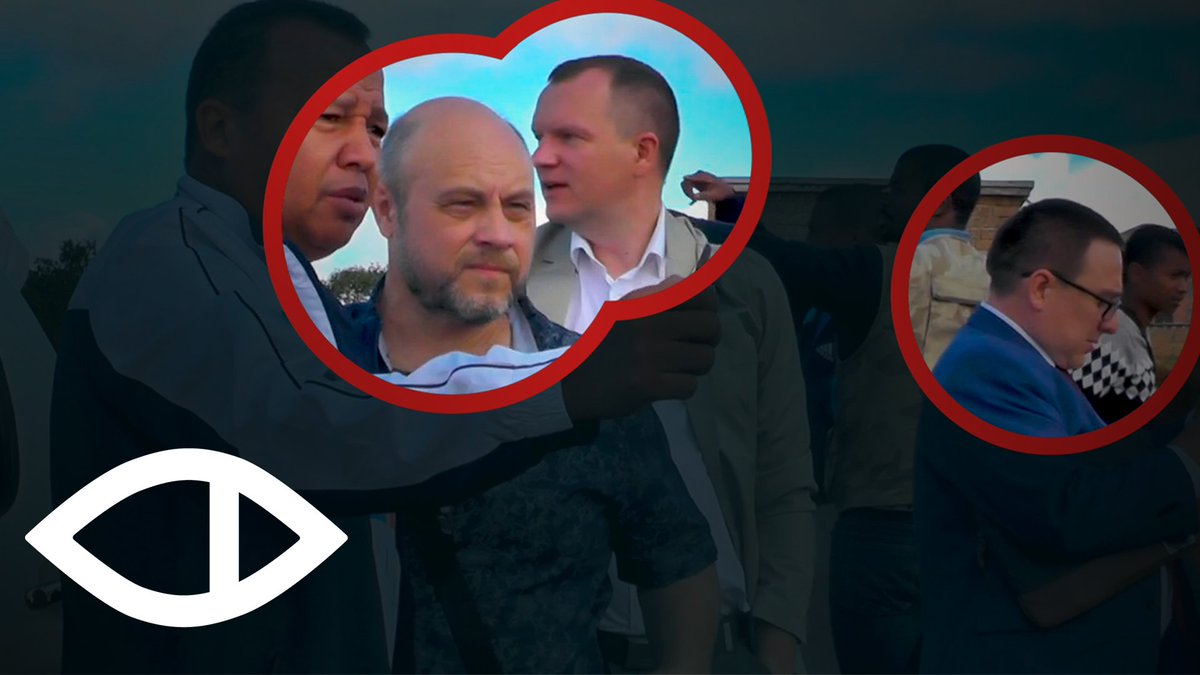THREAD
In the lead-up to Madagascar’s 2018 Presidential elections, teams of Russian 'tourists' and 'observers' were spotted on the island.
Who were these Russians? What were they doing in the country? And who was backing them?
#BBCAfricaEye investigates.
In the lead-up to Madagascar’s 2018 Presidential elections, teams of Russian 'tourists' and 'observers' were spotted on the island.
Who were these Russians? What were they doing in the country? And who was backing them?
#BBCAfricaEye investigates.
This is Madagascar. A jewel in the Indian Ocean.
It just had a key presidential election.
But there have been rumours of outside influence and suspicion of foreign funding on a large scale.
It just had a key presidential election.
But there have been rumours of outside influence and suspicion of foreign funding on a large scale.
It all started with the arrival of a group of Russians in March last year, 8 months before the election.
Most stayed in La Residence Ankerana, a secluded hotel in a quiet part of the capital Antananarivo.
Most stayed in La Residence Ankerana, a secluded hotel in a quiet part of the capital Antananarivo.
Some Russians claimed to be 'tourists'.
Others came to Madagascar to 'observe' the elections.
So who were the men behind the suits and tourist clothing?
Others came to Madagascar to 'observe' the elections.
So who were the men behind the suits and tourist clothing?
Many were political strategists.
We identified four of them: Andrei, Roman, Vladimir, and Maxim.
Back home, Andrei Kramar has strong political connections.
Roman Pozdnyakov is a businessman.
And Vladimir Boyarishchev has a history in the diamond trade.
We identified four of them: Andrei, Roman, Vladimir, and Maxim.
Back home, Andrei Kramar has strong political connections.
Roman Pozdnyakov is a businessman.
And Vladimir Boyarishchev has a history in the diamond trade.
Maxim Shugaley entered Madagascar as an election observer.
But in Russia, Maxim is a veteran political strategist.
A gun for hire for candidates in multiple elections back home.
But in Russia, Maxim is a veteran political strategist.
A gun for hire for candidates in multiple elections back home.
So what were these Russians doing in Madagascar, far from their home?
Andrei, Roman and Vladimir quickly made friends with Pastor Mailhol, founder of the Church of the Apocalypse.
He was a presidential candidate, claiming to have 1.5 million followers.
Andrei, Roman and Vladimir quickly made friends with Pastor Mailhol, founder of the Church of the Apocalypse.
He was a presidential candidate, claiming to have 1.5 million followers.
The three Russians came to Pastor Maihol bearing gifts.
A case filled with cash.
They also paid his deposit to enter the presidential election.
A case filled with cash.
They also paid his deposit to enter the presidential election.
Of the 36 candidates, at least six were offered money by Russians.
One of the others targeted was Jean-Omer Beriziky, a former Prime Minister running for President for the first time.
The Russians promised him about $2 million, he says.
One of the others targeted was Jean-Omer Beriziky, a former Prime Minister running for President for the first time.
The Russians promised him about $2 million, he says.
Maxim Shugaley was leading the team working with Beriziky.
Onja Rasamimanana, Beriziky's campaign manager, met him 4 months before the election.
Far from acting as an impartial observer, Maxim was apparently seeking to control the candidate’s campaign.
Onja Rasamimanana, Beriziky's campaign manager, met him 4 months before the election.
Far from acting as an impartial observer, Maxim was apparently seeking to control the candidate’s campaign.
Russian influence on the island had grown in the years leading up to the elections.
Lucrative trade ties were discussed in Moscow and high-level military accords have been signed in Madagascar.
Lucrative trade ties were discussed in Moscow and high-level military accords have been signed in Madagascar.
Back on the campaign, it wasn’t just money on offer.
The Russians were promoting events to help get their candidates' messages across.
At one of them, there was a special guest: Kemi Seba.
A controversial but popular figure. A leading campaigner for a united Africa.
The Russians were promoting events to help get their candidates' messages across.
At one of them, there was a special guest: Kemi Seba.
A controversial but popular figure. A leading campaigner for a united Africa.
In the meantime, a front-runner was emerging in the election race.
Andry Rajoelina, candidate number 13.
He had been president once before, brought to power in a military coup in 2009.
Andry Rajoelina, candidate number 13.
He had been president once before, brought to power in a military coup in 2009.
Up until now, the Russians had supported a number of candidates.
But with a clear front-runner emerging, it was time to cut ties with some.
On the eve of the elections, there was bad news for Pastor Mailhol.
But with a clear front-runner emerging, it was time to cut ties with some.
On the eve of the elections, there was bad news for Pastor Mailhol.
The Pastor refused to pull out.
He’d been hearing rumours.
And his Russian bodyguard, Konstantin, had been transferred to the campaign favourite.
He’d been hearing rumours.
And his Russian bodyguard, Konstantin, had been transferred to the campaign favourite.
Things weren’t looking good at the Beriziky campaign either.
The team was beginning to feel sidelined and then the Russians asked them to withdraw and support another candidate.
The team was beginning to feel sidelined and then the Russians asked them to withdraw and support another candidate.
Beriziky wouldn't tell us who the other candidate was.
But his campaign manager did.
The answer was Andry Rajoelina, the candidate now poised to win.
But his campaign manager did.
The answer was Andry Rajoelina, the candidate now poised to win.
Who was behind the Russian political strategists operating in Madagascar?
We don't know.
But unconfirmed media reports claim it is this man, Yevgeny Prigozhin.
We don't know.
But unconfirmed media reports claim it is this man, Yevgeny Prigozhin.
Mr Prigozhin is close to President Putin and was indicted in the US for alleged criminal interference in the 2016 presidential election - a charge which he denies.
In several African countries, Mr Prigozhin is said to be financing similar teams in forthcoming elections.
This is what his office told the BBC in response to those allegations:
This is what his office told the BBC in response to those allegations:
Andrei, Roman, Vladimir, and Maxim did not respond to requests to comment.
Oleg Zakhariash, a member of the Russian group insisted that no candidates had withdrawn from the election.
He also said that he was in Madagascar to study the social and economic situation.
Oleg Zakhariash, a member of the Russian group insisted that no candidates had withdrawn from the election.
He also said that he was in Madagascar to study the social and economic situation.
Kemi Seba responded to the allegations about his involvement with the Russians in an interview with our reporter @Galaelle.
It’s the last days of the campaign.
Andry Rajoelina is completing his tour of the country by helicopter.
And we’ve come to ask whether candidate number 13, on the verge of the presidency, is his own man.
Andry Rajoelina is completing his tour of the country by helicopter.
And we’ve come to ask whether candidate number 13, on the verge of the presidency, is his own man.
Andry Rajoelina certainly won the support of his own people.
On January 19 he was sworn in as president.
The country’s new leader is already a wealthy man, and there’s no evidence he accepted any Russian money.
On January 19 he was sworn in as president.
The country’s new leader is already a wealthy man, and there’s no evidence he accepted any Russian money.
But teams of Russians did seek to shape these elections, and weak laws in Madagascar seemed to have opened the door to foreign interference.
Watch the full Madagascar investigation on @youtube here:
#BBCAfricaEye investigation led, filmed, produced, and edited by @Galaelle , @nicksturdee, @BERTINET5, and @Yaolri.
With key contributions from @Soshnikoff, @Emmawells1, @skazal_on, @CapteursO, @BenDoBrown, @y_vdw, @christogrozev and many others!
#NothingStaysHiddenForever
With key contributions from @Soshnikoff, @Emmawells1, @skazal_on, @CapteursO, @BenDoBrown, @y_vdw, @christogrozev and many others!
#NothingStaysHiddenForever
Thanks also to @effisfor, @sector035, @biomohamed, and @AnnaPayton2 for key contributions to this investigation.

 Read on Twitter
Read on Twitter